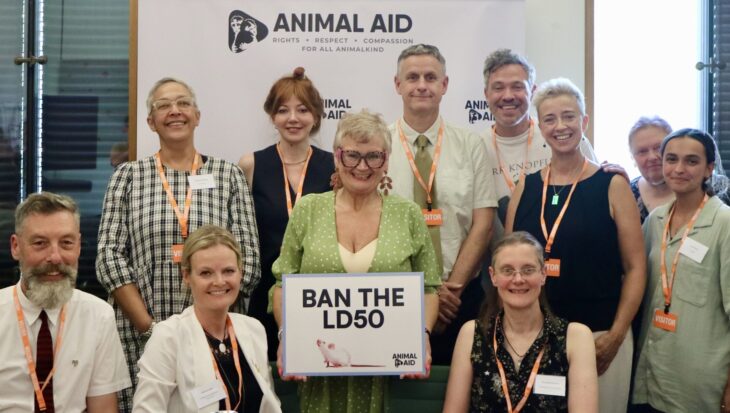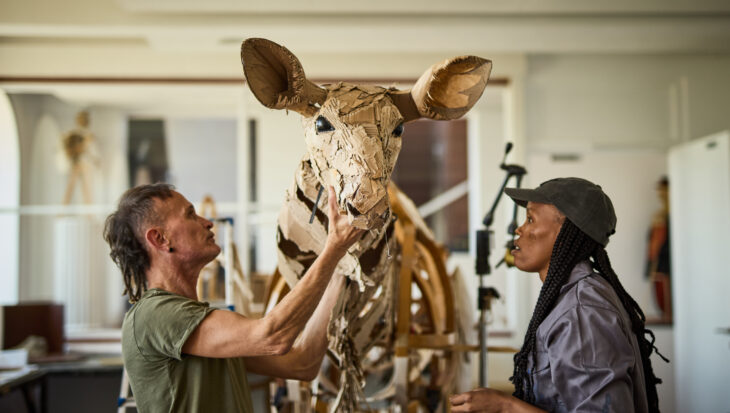Animal Aid in parliament to discuss ending animal tests
Yesterday, Animal Aid hosted a roundtable in Westminster, to meet with MPs and other invited guests to discuss the ending the LD50 and other animal tests.
Posted 02 Jul 2025

Posted on the 30th September 2016
Today, the 30th September, the Nuffield Council on Bioethics has published its report ‘Genome editing: an ethical review’ which considers the impact of recent advances in gene editing and the ethical questions which these advances raise.
Of particular concern to Animal Aid are the following points, which the report covers:
If you are concerned about the way that humankind exploits animals, please order one of our information packs on:
Yesterday, Animal Aid hosted a roundtable in Westminster, to meet with MPs and other invited guests to discuss the ending the LD50 and other animal tests.
Posted 02 Jul 2025

Have you heard? A breathtaking arts initiative, ‘The Herds’ will be arriving in London this Friday.
Posted 27 Jun 2025
